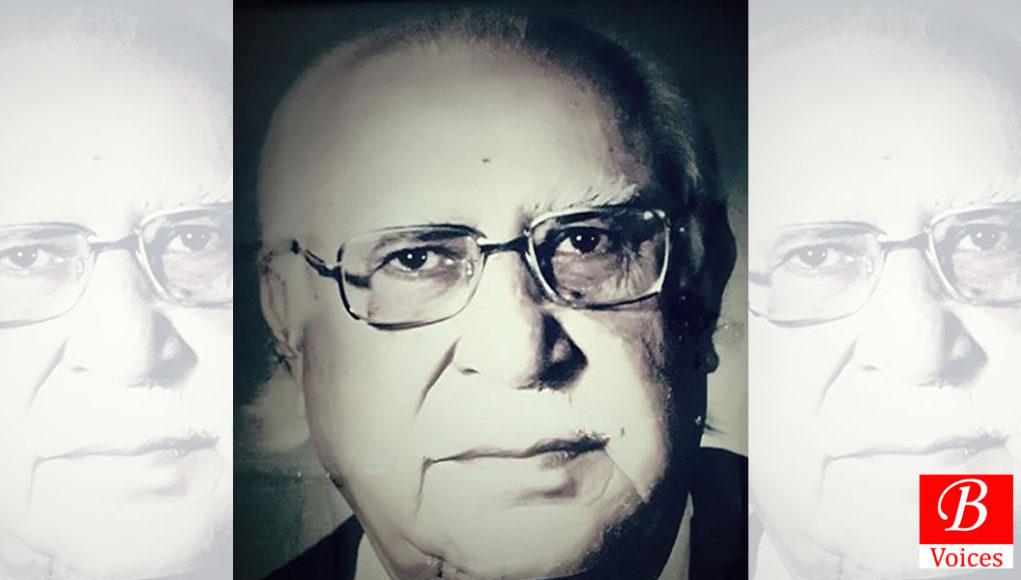Balochistan the most turbulent province of Pakistan is in the news for different reasons. People from all over the country discuss Balochistan conflict and debate on the post partition history of the province. This history is incomplete without the mention of Ghaus Baksh Bizenjo, honored with the title of Baba-e-Balochistan, who died on this day in 1989.
Attaullah Mengal, former Chief Minister of Balochistan and a veteran Baloch politician, said about Ghaus Baksh Bizenjo that “He can’t live without politics. He has to have it or He will perish.” He remained in the political arena for 5 decades and He is arguably one of the most respected politicians in history of Post-Partition Balochistan.
Ghaus Baksh Bizenjo can’t live without politics. He has to have it or He will perish – Sardar Attaullah Mengal
Mir Ghaus Baksh Bizenjo was born in 1918 in Khuzdar district. He studied in Sandeman High School Quetta from 1925 to 1935. He survived the deadly earthquake which destroyed Quetta in 1935. After earthquake, He went to Karachi and joined Sindh Madrasatul Islam and studied there till 1937.
He was a gifted football player and due to his football skills, He managed to get admission in Aligarh College and studied there from 1937 till 1939. In 1939, He came to Karachi after finishing his studies in Aligarh College. Same year a convention of Kalat State National Party was held in Mastung. Ghaus Baksh Bizenjo attended this convention as a member of Karachi based Baloch league. This marked the beginning of his 50 year political career. After the convention he joined Kalat State National party. He was elected as a member of lower house of Kalat state in 1947 after partition. In 1955 he was one of the founding members of Ustaman gal, the successor of Kalat state National Party.
In 1956, Ustaman Gal merged with other left wing nationalist parties to form Pakistan National Party. This party merged with Bashani faction of Awami league to form the famous National Awami Party (NAP) in 1957. Ghaus Baksh Bizenjo was an active member of both.
During East Pakistan crisis in 1970-71, He was secretary General of NAP and went to meet Sheikh Mujib-ur-Rehman along with Wali khan in March 1971. On persuasion of Wali Khan and Ghaus Baksh Bizenjo, Sheik Mujib agreed to negotiate with Yahya Khan. But the dictator Yahya instead of accepting his demands of convening a national assembly session, ordered a military operation in East Pakistan. What followed next is a black chapter in History of Pakistan.
Anyhow, after separation of East Pakistan, Ghaus Baksh Bizenjo became Governor of Balochistan on 28th April 1972. He remained in office for only 10 months and was dismissed by civilian dictator Z.A Bhutto on trumped up charges on 15th February 1973. Despite his dismissal, He played a crucial role in formulation of 1973 constitution and persuading other members of NAP on matters of disagreement.
He was arrested along with Sardar Attaullah Mengal and Nawab Khair Baksh Marri in August 1973 on orders of Bhutto and He remained imprisoned till 1977. In 1975, He was implicated in the infamous Hyderabad Conspiracy case. In 1979, he developed differences with the leadership of National Democratic Party (successor of NAP) and formed his own Pakistan National party (PNP). He remained its president till his death in 1989. He was also an active member in the Movement for Restoration of Democracy during the dictatorial rule of Zia-ul-Haq.
Ghaus Baksh Bizenjo is one of the ablest politicians in Pakistan and could have played a major role in Islamabad but He couldn’t due to his Baloch identity and commitment to Baloch cause – Selig H. Harrison
After playing a long political innings, He died in Karachi on 11th August 1989. He was a great politician and spent at least 10 years in prison during his 50 years in politics. Famous historian and analyst Selig H. Harrison, In his book In Afghanistan’s Shadow writes about Ghaus Baksh Bizenjo: “He is one of the ablest politicians in Pakistan and could have played a major role in Islamabad but He couldn’t due to his Baloch identity and commitment to Baloch cause.”
Ghaus Baksh Bizenjo was always a reconciliationist and pacifist in his political approach. His detractors mocked him with the title of Baba-e-Muzakarat (Father of Negotiations) because he was ever willing to negotiate with his political opponents. That was his quality; he didn’t believe in confrontation and believed in solving problems at negotiation table.
People like Ghaus Baksh Bizenjo are born once in a life time and they leave irremovable marks on history. Ghaus Baksh Bizenjo will always be remembered as a great politician who played a crucial part in history and He could have played a much greater role if people from every province of Pakistan were deemed equal.
This article was originally written by the author in 2013 and now published with minor changes.
Note: If you have found an error in this article or a factual inaccuracy or just want to give general feedback then feel free to contact as at [email protected]
Share your comments!








